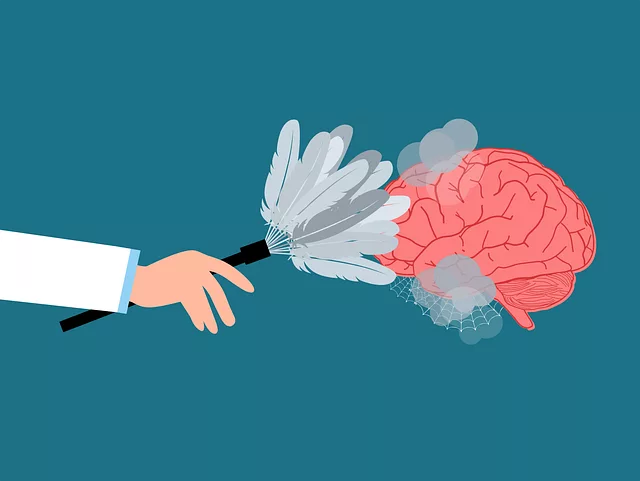Colorado Springs navigates a complex mental health landscape, marked by progress and challenges. While initiatives like Kaiser Permanente's psychiatric services promote psychological resilience, disparities persist among marginalized communities, demanding tailored interventions. Advocacy groups play a crucial role in driving change through policy advocacy, awareness campaigns, and pushing for improved access to affordable care. Their efforts have led to significant improvements, such as enhanced services at Kaiser Permanente, including phone support staffed by psychiatrists and counselors, catering to anxiety, depression, and other common mental health issues. The Kaiser Permanente psychiatry phone number Colorado Springs serves as a vital resource, facilitating early intervention and destigmatization of mental health concerns within the community.
Mental health policy analysis and advocacy are vital components of fostering positive changes in communities. This article delves into the complex landscape of mental healthcare in Colorado Springs, focusing on key issues and trends. We explore the significant role of advocacy groups in shaping local psychiatry services, particularly through their collaboration with organizations like Kaiser Permanente. Additionally, we investigate Kaiser Permanente’s mental health initiatives, including phone support services available in Colorado Springs, and offer effective strategies for policy analysis to drive systemic improvements.
- Understanding Mental Health Policy: A Overview of Key Issues and Trends in Colorado Springs
- The Role of Advocacy Groups and Their Impact on Local Psychiatry Services
- Kaiser Permanente's Mental Health Initiatives: Exploring Phone Support in Colorado Springs
- Effective Strategies for Policy Analysis and Promoting Positive Mental Health Changes
Understanding Mental Health Policy: A Overview of Key Issues and Trends in Colorado Springs

In Colorado Springs, mental health policy is a complex landscape woven with both progress and challenges. The region has witnessed growing recognition of mental well-being as a cornerstone of overall health, reflected in initiatives aimed at integrating psychiatric services into primary care settings, such as those offered by Kaiser Permanente psychiatry phone number Colorado Springs. This shift aligns with mind over matter principles, emphasizing the role of psychological resilience in disease prevention and management. However, disparities persist, particularly among marginalized communities, highlighting the need for tailored interventions.
Trends indicate a rising demand for accessible, affordable mental health services, including confidence-boosting programs and stress management workshops. Organizations are stepping up to fill this gap, leveraging innovative models of care and community engagement. In light of these developments, advocacy groups champion policies that expand insurance coverage for mental health treatments, ensure cultural competency in healthcare delivery, and promote early intervention strategies. Such efforts aim to create a more inclusive and supportive environment where residents can thrive, underscoring the city’s commitment to holistic well-being.
The Role of Advocacy Groups and Their Impact on Local Psychiatry Services

Advocacy groups play a pivotal role in shaping mental health policies and improving access to psychiatric services, especially at the local level. These groups, often composed of individuals with personal experiences or professionals dedicated to mental well-being, serve as powerful voices for change. By advocating for better resources, increased funding, and improved treatment options, they directly influence the development and implementation of healthcare strategies. For instance, in Colorado Springs, local advocacy organizations have been instrumental in bringing attention to the need for expanded psychiatric services within Kaiser Permanente, leading to initiatives focused on burnout prevention strategies for healthcare providers.
Their impact extends beyond policy changes; these groups also foster awareness campaigns that promote positive thinking and encourage early intervention for mental health issues. Furthermore, they emphasize the critical aspect of cultural competency training for healthcare providers, ensuring they can offer sensitive and effective care to diverse populations. Through their efforts, advocacy groups contribute to creating a more inclusive and responsive healthcare system tailored to the unique needs of individuals struggling with mental illness.
Kaiser Permanente's Mental Health Initiatives: Exploring Phone Support in Colorado Springs

Kaiser Permanente, a renowned healthcare organization, has been at the forefront of pioneering mental health initiatives, especially in Colorado Springs. One notable effort is their commitment to providing phone support services for individuals seeking psychiatric care. This initiative aims to improve accessibility and reduce barriers to treatment, addressing a critical gap in the region’s mental health landscape. With a dedicated team of psychiatrists and counselors, Kaiser Permanente offers confidential conversations tailored to help residents navigate anxiety, depression, and other common mental health challenges.
The introduction of this service reflects a broader strategy within the organization to promote emotional regulation and combat healthcare provider burnout. By prioritizing public awareness campaigns and burnout prevention strategies, Kaiser Permanente recognizes the interconnectedness of both aspects in fostering a healthier community. This holistic approach encourages open discussions about mental well-being, ensuring that individuals in Colorado Springs have readily available resources to support their emotional needs.
Effective Strategies for Policy Analysis and Promoting Positive Mental Health Changes

Policy analysis is a powerful tool to drive positive mental health changes and improve access to quality care. One effective strategy involves collaborating with diverse stakeholders, including healthcare providers, policymakers, community organizations, and people with lived experiences. By fostering an inclusive environment, advocates can identify gaps in current policies and services, ensuring that mental wellness initiatives are evidence-based and tailored to the specific needs of different populations.
Additionally, public awareness campaigns play a crucial role in destigmatizing mental health issues and promoting early intervention. Educating communities about mental wellness, recognizing warning signs of common conditions like depression, and providing resources for support services can empower individuals to seek help promptly. Incorporating these efforts with consistent advocacy, such as engaging the Kaiser Permanente psychiatry phone number Colorado Springs for expert insights and collaboration, can lead to systemic improvements in mental health care accessibility and overall community resilience.
Mental health policy analysis and advocacy are vital components in creating a supportive environment for residents of Colorado Springs. By understanding the key issues and trends, leveraging the power of advocacy groups, and implementing effective strategies, we can drive positive changes in mental healthcare access and quality. Kaiser Permanente’s initiatives, including phone support services accessible via the Kaiser Permanente psychiatry phone number in Colorado Springs, highlight innovative approaches that advocate for better mental health outcomes. As we continue to navigate this complex landscape, collaborative efforts between policymakers, advocates, and healthcare providers are essential to ensure a brighter, more resilient future for our community’s mental well-being.






